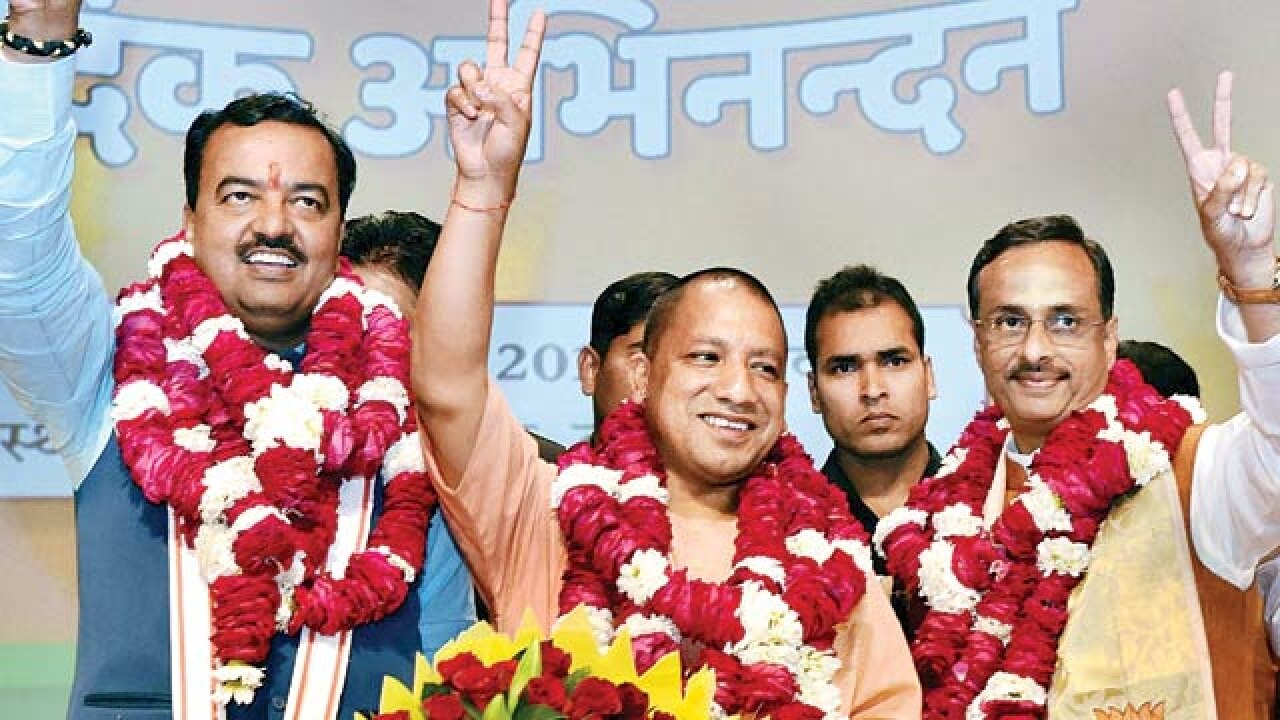
It would be an understatement to say that the election of Yogi Adityanath as the chief minister of Uttar Pradesh has come as a surprise. Prime Minister Narendra Modi has made a habit of keeping the chief ministerial nominees' identity close to his chest that the media and even BJP leaders, including the leading contenders, are either clueless or caught unawares. But the appointment of Yogi Adityanath raises certain questions that PM Modi may have to answer in the days ahead. The BJP went into the polls without a CM face, and the credit for the massive victory in the UP polls rightly belonged to PM Modi. But in appointing Adityanath, a rabble-rousing politician with a menacing private army of his own, the Hindu Yuva Vahini, Modi has arguably taken some of the sheen off his tremendous win. The UP electorate chose Modi overlooking the claims of two past UP chief ministers, Akhilesh Yadav and Mayawati, and they were betting on Modi to show the way ahead for the state.
In choosing Adityanath, whose track record for vituperative speeches does not fit him in the mould of BJP chief ministers handpicked by Modi earlier, the PM may have taken a big risk. The chief ministers of Maharashtra, Haryana, Jharkhand, Gujarat and Uttarakhand had a remarkable commonality: they were soft-spoken, low-profile, came from RSS backgrounds, and were known more as organisation men. Adityanath, in contrast, is a five-term Member of Parliament, and has an image of a larger than life politician with his own extensive grassroots network in eastern UP. With a long innings in electoral politics, it was surprising that Modi, who did not consider him for a portfolio in his cabinet, has now entrusted him with an even bigger responsibility. UP, with its huge population, poor development indices, difficulty of governance, and history of communal riots, can be a nightmare even for a proven administrator. Adityanath’s initial remarks indicate that he has risen to the occasion, stating that growth, and not religion, was his first priority, and that he would work for all sections of society.
What will not be lost in the choice of Adityanath is the strategy Modi has in mind for the 2019 general elections. The new government will have little time to show results on the ground in such a big state and Adityanath, with his identity as a Hindu religious leader, will come handy for the BJP to override the caste distinctions that tend to cleave the state’s electoral politics. Modi may have overcome the backward class politics of the SP and BSP in 2014 and 2017 but if these two parties were to put up a united front along with the Congress, it may prove to be a different ball game, at least in terms of electoral arithmetic. Adityanath can be expected to exhort the UP Hindu society to rise above caste and tackle the developmental challenges together. All this brings us to the Muslim question. Comprising nearly 20 per cent of the state’s population, and with a chief minister who has been openly hostile to the community, their political marginalisation is complete. Both the Prime Minister and chief minister must take the lead in building the bridges and ensuring their safety and security.